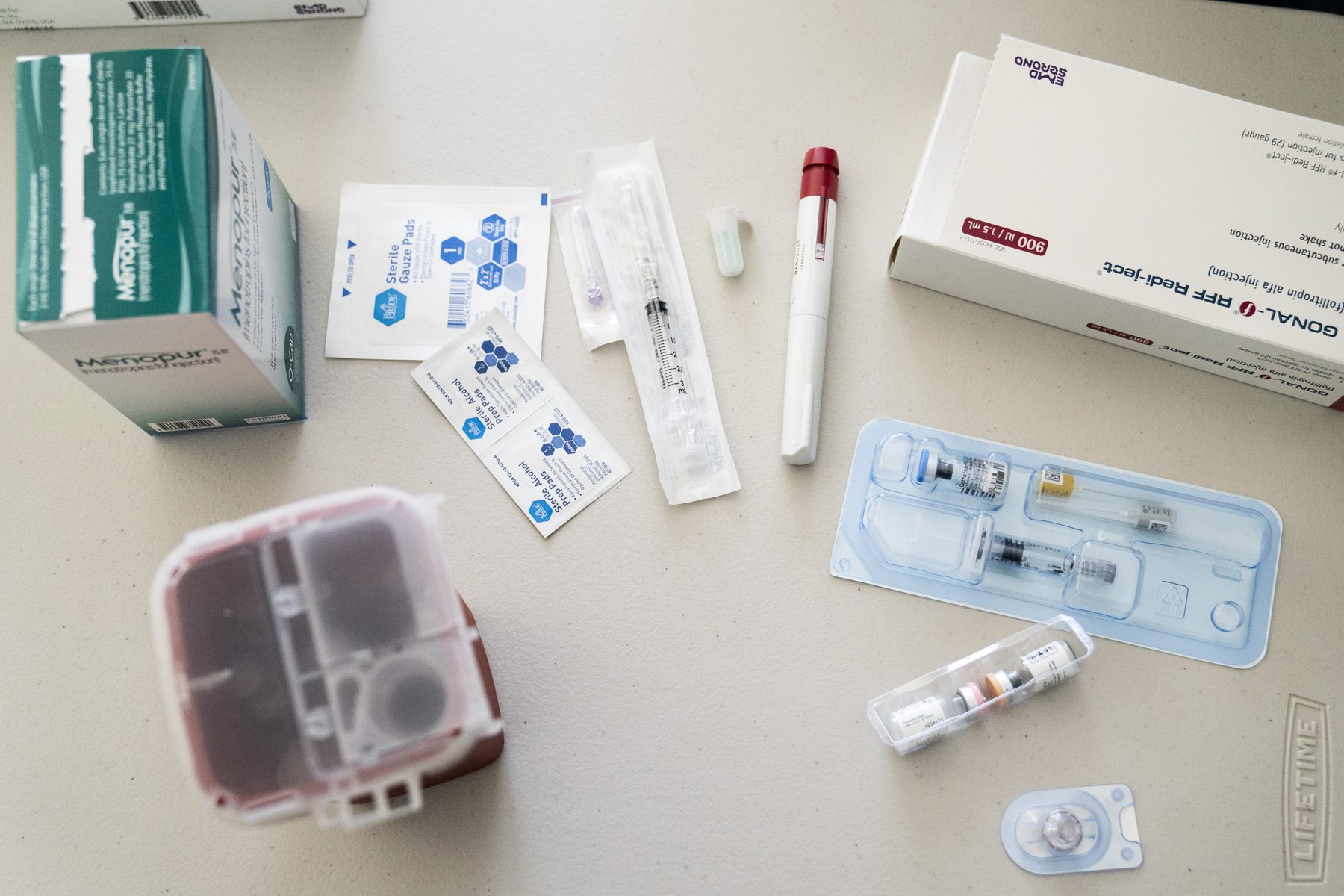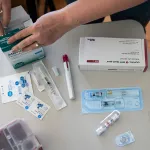Anti-abortion politicians and ballot initiatives lost big at the ballot box in the 2022 midterms. But fertility treatment advocates and patients are gearing up to fight against the next wave of anti-abortion legislation and restrictions on reproductive health.
RESOLVE: The National Infertility Association is gearing up for 2023 state legislative sessions with a new initiative, Fight for Families, to expand its lobbying and advocacy against strict abortion bans and proposed personhood laws that could threaten access to fertility treatments including in vitro fertilization, or IVF.
Fight for Families, the details of which were shared first with The 19th, will build on RESOLVE’s current lobbying and organizing in statehouses against laws that seek to establish personhood for embryos at the moment of fertilization. In addition to tracking and monitoring legislation that could threaten IVF, it will center the voices of fertility doctors and affected patients sharing their stories directly with lawmakers and the public.
“We have been fighting these attempts at the state level for the last 15 years or so,” Barb Collura, RESOLVE’s president and CEO, told The 19th in an interview. “But the stakes are much higher. And we have such incredible stories from our community that need to be told.”
Betsy Campbell, RESOLVE’s chief engagement officer, said patient stories and testimony have been crucial for the organization’s past work defeating proposed fetal personhood laws, expanding insurance coverage for fertility treatment and egg freezing, and bolstering access to IVF and surrogacy for LGBTQ+ couples.
“Fight for Families is a public education and storytelling campaign,” Campbell said. “Whenever we’re advocating in a state, whether it’s good or bad legislation, it’s important for patients to share their stories. That’s how we’ve had success passing pro-family bills, and it’s how we’ve had success fighting bills that are anti-family.”
The Supreme Court overturning Roe v. Wade brought the consequences of abortion bans into stark relief for those affected by infertility and pregnancy loss. Some patients struggled to receive care for miscarriages and complications later in pregnancy, and those who created frozen embryos in IVF worried laws defining life at the moment of fertilization could threaten the routine practice of disposing of some embryos.
In a given IVF cycle, embryos are often frozen but later discarded because of genetic abnormalities uncovered in testing, other problems that could reduce the chances of a successful pregnancy, or because they’re not needed. And if an IVF cycle results in multiple viable fetuses implanting in the uterus, some IVF patients also opt for selective reduction to reduce medical risks associated with carrying multiples.
Over a dozen states have total abortion bans in effect, some of which define the beginning of life as the moment of fertilization, even before conception. Alabama’s abortion ban contains a specific carveout for embryos created as part of IVF cycles, but other states’ abortion bans are much murkier on where life begins — leaving patients and providers in a lurch.
E-Beth Marshall, an infertility patient advocate and RESOLVE board member based in Arizona, said many fertility patients are still “stuck in these islands” of inconsistent insurance coverage, legal uncertainty and the fear of not being able to access abortion care if a wanted pregnancy becomes dangerous or non-viable.
“We talk about how to prevent pregnancy, and we talk about what to do when you have a pregnancy and what your choices are,” Marshall said. “We kind of lose in the middle what happens when you can’t get pregnant or when you can get pregnant, but you have recurring losses.”
Republicans lost ground in state legislatures Tuesday, with Democrats flipping control of key battleground chambers in Michigan and Minnesota, and three states voting to enshrine reproductive rights protections into their state constitutions.
But advocates are nervously anticipating Republican-controlled states introducing both restrictions on the handling of embryos in IVF itself and additional abortion bans and personhood laws that could threaten access to fertility treatment more broadly in 2023 legislative sessions.
Comments from some politicians and candidates have sparked concern about the future of IVF. An IVF patient in Tennessee, Sara Chambers, emailed her state representative to seek clarity on whether the state’s abortion ban, which defines life at the moment of fertilization, meant she couldn’t dispose of her embryos. He responded that “life does begin at conception either in the womb or in the IVF clinic.”
And top lawmakers in Florida, where Republicans gained a legislative supermajority, are already discussing plans to pass abortion restrictions stricter than the state’s current 15-week ban.
Trying to ban IVF altogether is likely a political non-starter in any legislature. But infertility treatment advocates worry that personhood laws and potential restrictions on genetic testing and destruction of embryos could put fertility treatment out of reach for many.
“Our experience has been when we have conversations with lawmakers, they didn’t realize that the legislation implicates IVF and can make it more difficult for people trying to have a healthy pregnancy,” Campbell said. “That’s why these patient stories are so important.”
Sean Tipton, the chief advocacy, policy and development officer for the American Society of Reproductive Medicine, previously told The 19th that such restrictions could result in “the best way to do IVF” becoming prohibitively expensive and burdensome.
“We’re expecting bills to be written in a way that not only impacts the creation and disposition of embryos during an IVF cycle, but also prevent an infertility patient from getting the care they need during an ectopic pregnancy or miscarriage,” Campbell said. “In the post-Roe world, we’re not only opposing personhood, but also protecting IVF and others trying to build their family.”
Collura likened potential regulations on fertility clinics to the targeted restrictions on abortion providers, or TRAP laws, that many Republican-controlled states passed to make abortion less accessible without banning it outright.
“I think they’re gonna be savvier, smarter and maybe sneakier about how they do this and it’s not going to be as obvious,” she said. “And I’m worried that we’re gonna see things regulating what people can and can’t do with their embryos. We haven’t seen specific kind of thing before, but I think they’re going to say, ‘Hey, you can still do it, you can still go to a fertility clinic, you just have to do this and that with your embryo.’”
And despite the major setbacks abortion opponents faced in the midterms, Collura warns that anti-abortion movements won’t be dialing back their presence in statehouses anytime soon. “This is our new normal for the future. This is not about 2023 only,” she said.
Marshall, one of RESOLVE’s on-the-ground advocates and volunteers, is planning on showing up for the long haul, saying one of her first goals is to meet every newly elected state senator in Arizona.
“I think people need to understand that it’s not just about a baby, it’s about having a normal functioning reproductive system,” Marshall added. “It’s so important for women to have that, and if they need a little help, that’s okay. It doesn’t make anyone any less or any undeserving.”







